GCSE French Years 10 & 11
Specification
AQA - The specification and assessment structure can be found at the link below:
https://www.aqa.org.uk/subjects/french/gcse/french-8652/specification
What will I study?
By the end of year 9, pupils will have covered a good deal of the grammar required for GCSE. Furthermore, much work covered in years 8 and 9 will be relevant to the themes identified at GCSE. You will continue to work in the skill areas of Listening, Speaking, Reading and Writing, extending both vocabulary and grammar. The following themes are identified in the subject specification:
Theme 1: People and Lifestyle
Topic 1: Identity and relationships with others
Topic 2: Healthy Living and Lifestyle
Topic 3: Education and Work
Theme 2: Popular Culture
Topic 1: Freetime activities
Topic 2: Customs, festivals and celebrations
Topic 3: Celebrity Culture
Theme 3: Communication and the World around us
Topic 1: Travel and tourism
Topic 2: Media and technology
Topic 3: The environment and where people live
What skills and qualities are required?
Comprehension, both reading and listening, requires candidates to have a good knowledge of vocabulary, an understanding of the structure of the language and the ability to deduce meaning.
Written and spoken work requires good vocabulary, the ability to understand linguistic patterns and attention to detail. A sound understanding of verbs and tenses is needed.
Good application and consistent efforts with learning are needed, combined with the development of a feel for the language(s) studied.
The department’s aim is to produce confident and spontaneous language users.
How will I learn?
Comprehension work will be extended by addressing the demands of longer and more complex texts and by refining comprehension techniques. Written work will be developed by the inclusion of larger sequences of language. Speaking will be practised as a class, in small groups and individually. Pupils should extend their range of language and work to improve fluency, accuracy and accent.
How will I be assessed?
Listening (Paper 1) and Reading (Paper 3) are assessed in exams at the end of Year 11. These exams are worth 25% of the final exam. The listening paper lasts 35 minutes at Foundation Tier and 45 minutes at Higher Tier. The reading paper lasts 45 minutes at Foundation Tier and 1 hour at Higher Tier. There are various question types including English questions to be answered in English and multiple-choice questions. The listening paper includes a dictation and the Reading Paper includes short translation sentences from the foreign language into English.
Speaking (Paper 2) is assessed in one exam (conducted by the teacher) towards the end of Year 11. Recordings are externally marked by the Board. The exam is worth 25% of the whole exam and lasts 7-9 minutes at Foundation Tier and 10-12 minutes at Higher Tier. There are three sections which include a role-play exercise, a read aloud exercise followed by a conversation and a discussion based on a photo card.
Writing (Paper 4) is examined at the end of the course. At Foundation Tier, the exam lasts 1 hour 10 minutes and at Higher level, the exam lasts 1 hour 15 minutes and it makes up the final 25% of the exam. There are 3 questions:
Question 1 – a translation task (student translates 5 English sentences into French)
Question 2 – structured writing task (student responds to three compulsory bullet points, producing approximately 90 words in total) – there is a choice from two questions.
Question 3 – open-ended writing task (student responds to two compulsory bullet points, producing approximately 150 words in total) – there is a choice from two questions.
How will I be supported?
Students will be issued with a GCSE textbook and will have access to the online platform which accompanies it as well as being provided with a range of materials produced by the department which will be available on Sharepoint. The department also has a subscription to the language website Linguascope for the use of students.
The French department runs a series of support sessions, mainly aimed at Year 11 students. These normally include a speaking club which aims to improve exam technique in this skill, an after-school revision club which focuses on basic grammar and a lunch-time session which focuses on more advanced grammar and structures. In addition, a native speaker normally works with Year 11 students during some lessons to help develop their speaking skills.
Throughout the course at every CAT point, we shall assess pupils on the different skills and topics, covering all skills at least twice every year.
Where could it lead?
A language is an asset that could in future be allied to any skill or discipline and has clear applications within the world of business at all levels, including management and the entrepreneurial field. The same applies to, for example, the international legal system, work within the travel and tourism sector, work in national and local government, the diplomatic service, security, journalism or tourism. Language study could clearly lead to a career in translating as well as teaching, either secondary or primary. At university, there are opportunities to study for a joint honours degree offering study of a language allied to another subject and with the possibility of studying or working abroad for one year as part of the course. This applies not only to language study with other Arts subjects, but also Business, Law and even subjects such as Engineering and Computer Studies. The study of French offered at King’s prepares students for future acquisition of other Latin-based languages such as Spanish and Italian..
The Department believes that language learning is a necessary and exciting requirement of the modern world. A GCSE in French forms part of the English Baccalaureate, meaning that a good qualification in Languages is increasingly sought after.
Year 10
| Topic | Further details about the topic | Skills | |
|---|---|---|---|
| Autumn Term | |||
| 1 & 2 | TBC | ||
|
Spring Term |
|||
| 1 |
|
TBC | |
| 2 | TBC | ||
| Summer Term | |||
| 1 & 2 | TBC | ||
Year 11
| Topic | Further details about the topic | Skills | |
|---|---|---|---|
| Autumn Term | |||
| 1 | TBC | ||
| 2 | TBC | ||
| Spring Term | |||
| 1 | TBC | ||
| 2 | TBC | ||
Assessments
| Resources | Topic | Type of assessment |
|---|---|---|
| CAT 1 | TBC | |
| CAT 2 | TBC | |
| CAT 3 | TBC | |
| CAT 4 | TBC | |
| CAT 5 | TBC | |
| CAT 6 | TBC |
Main Resources
| Resource | Details | Term |
|---|---|---|
| Text books | All | |
| Other materials | ||
| Recommended websites | All |
Enrichment opportunities
| Activity | Day and time or term |
|---|---|
| Support sessions Year 11 | One lunchtime a week |
| French and cakes group Year 11 (extension grammar) | One lunchtime a week |







